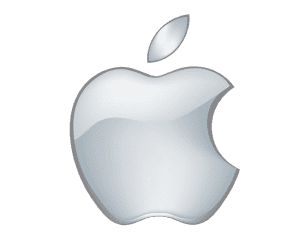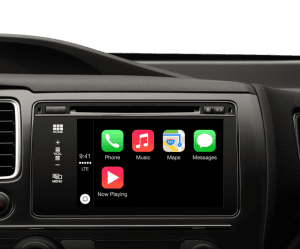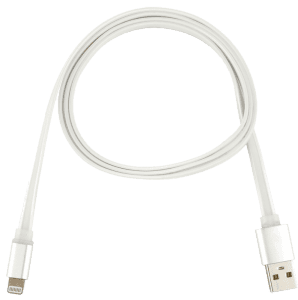 Nobody will deny that the Apple iPod is single-handedly responsible for a massive shift in the portability of music. Sure, the Walkman and Discman were important components in the history of portable media players, but those technologies supported existing music formats in the form of cassettes and compact discs. The iPod embraced digital media file formats, and though Apple offers its own compression formats in the form of AAC and ALAC, the iPod made MP3 files and digital audio downloads immensely popular.
Nobody will deny that the Apple iPod is single-handedly responsible for a massive shift in the portability of music. Sure, the Walkman and Discman were important components in the history of portable media players, but those technologies supported existing music formats in the form of cassettes and compact discs. The iPod embraced digital media file formats, and though Apple offers its own compression formats in the form of AAC and ALAC, the iPod made MP3 files and digital audio downloads immensely popular.
How the iPod Changed Music
 In the ’80s and ’90s, going to the record store was a thing. Music enthusiasts knew when new albums would be released and would plan their schedules around making time to be at the store early on those mornings so they’d be the first to get a copy. Fast forward to the 2000s, and access to new music is as simple as a click of your computer mouse or a tap on your phone and a short wait while the album downloads to your desktop or your smartphone. This convenience eventually affected the record store business model, and we’ve since seen Tower Records, Camelot Music, Tape World, Sam Goody and Canada’s Sam the Record Man fade away.
In the ’80s and ’90s, going to the record store was a thing. Music enthusiasts knew when new albums would be released and would plan their schedules around making time to be at the store early on those mornings so they’d be the first to get a copy. Fast forward to the 2000s, and access to new music is as simple as a click of your computer mouse or a tap on your phone and a short wait while the album downloads to your desktop or your smartphone. This convenience eventually affected the record store business model, and we’ve since seen Tower Records, Camelot Music, Tape World, Sam Goody and Canada’s Sam the Record Man fade away.
The real benefit of the iPod and subsequently the iPhone was their ability to store a large amount of music in a convenient and easily accessible package. This convenience spelled the demise of the CD changer and the advance of support for direct compatibility with Apple devices. Companies like Clarion launched graphical interfaces around 2005 that provided an iPod-like experience in the screen of their multimedia receivers. Now, almost every source unit on the market offers Made for iPod/iPhone/iPad connectivity.
What is the MFi Program?
 Apple’s MFi (Made for iPod/iPhone/iPad) program is a licensing program for companies that develop hardware or software that is designed to communicate digitally with these portable media devices. The original program, called Made for iPod, was launched in 2005 at the Macworld Expo and has evolved to include AirTunes wireless streaming, wireless game controllers and, most recently, devices intended for use with the HomeKit system that mimics Google Home and Alexa functionality.
Apple’s MFi (Made for iPod/iPhone/iPad) program is a licensing program for companies that develop hardware or software that is designed to communicate digitally with these portable media devices. The original program, called Made for iPod, was launched in 2005 at the Macworld Expo and has evolved to include AirTunes wireless streaming, wireless game controllers and, most recently, devices intended for use with the HomeKit system that mimics Google Home and Alexa functionality.
As a manufacturer, companies developing products under the MFi agreement are provided with technical resources such as connector information, component specifications and software protocols required to make their devices work. The caveat is that any device that will use Apple certified compatibility icons must pass a stringent product certification process. Several members of the Best Car Audio team have intimate experience with this certification process, and we can tell you that obtaining certification is often a difficult challenge. If you follow the industry carefully, you’ll be able to think of many products that were delivered to the market late because of changes required by Apple.
How Does MFi Benefit Consumers?
 The goal of the MFi program is to ensure that consumers are provided with a predictable experience. Functions may not always work the way you want, but they will work the same on every product that has been through the MFi certification program. Though iPod and iPhone connectivity is a relatively simple process, the recent popularity of CarPlay is where the standards really tax the resources of those who are developing products. Apple tests screen geometry, icon colors and the position of volume function overlays. It has stringent hardware requirements that include strict USB connectivity testing and requirements for an onboard gyro.
The goal of the MFi program is to ensure that consumers are provided with a predictable experience. Functions may not always work the way you want, but they will work the same on every product that has been through the MFi certification program. Though iPod and iPhone connectivity is a relatively simple process, the recent popularity of CarPlay is where the standards really tax the resources of those who are developing products. Apple tests screen geometry, icon colors and the position of volume function overlays. It has stringent hardware requirements that include strict USB connectivity testing and requirements for an onboard gyro.
When you go shopping for a CarPlay device for your vehicle, you’ll want to look for products that are MFi certified. Currently, they are available from Alpine, Clarion, JVC, Kenwood, Pioneer and Sony, according to Apple’s CarPlay website.
What About Devices That Aren’t MFi Certified?
 In researching this article, we talked to several companies that develop products under the MFi program. One of them mentioned that they had seen a list of blacklisted device keys in a preview of iOS 12.1 for the iPhone Xs. What does this mean? Any device that connects to an iPod, iPhone or iPad through the Lightning connector must include a small microcontroller that includes a software key. Think of this key like a digital serial number. These microcontrollers are found on all Lightning cables as well as headphone and video adapters.
In researching this article, we talked to several companies that develop products under the MFi program. One of them mentioned that they had seen a list of blacklisted device keys in a preview of iOS 12.1 for the iPhone Xs. What does this mean? Any device that connects to an iPod, iPhone or iPad through the Lightning connector must include a small microcontroller that includes a software key. Think of this key like a digital serial number. These microcontrollers are found on all Lightning cables as well as headphone and video adapters.
When Apple launched iOS 7 in September 2013, many unlicensed Lightning cables stopped working and users got a message stating that “this cable or accessory is not certified and may not work reliably with this iPhone.” Though there seemed to be some workarounds to get those cables to charge your phone, it was a brief look at what Apple can do regarding protecting its intellectual property.
 Recently, we’ve seen an influx of inexpensive Lightning cables and charging adapters available for sale at the checkout counter of local gas stations, variety stores and hardware stores. While the price and convenience of these cables are alluring, we want to caution our readers about using devices that aren’t specifically approved by Apple.
Recently, we’ve seen an influx of inexpensive Lightning cables and charging adapters available for sale at the checkout counter of local gas stations, variety stores and hardware stores. While the price and convenience of these cables are alluring, we want to caution our readers about using devices that aren’t specifically approved by Apple.
Adding CarPlay to Your Vehicle
If you have a vehicle with a color touchscreen, who wouldn’t want to be able to add the convenience and safety of CarPlay to the vehicle? Several companies like BMW and Hyundai have made upgrades available for purchase to add this functionality to platforms that did not come with CarPlay from the factory.
Several third-party options claim to add CarPlay to almost any vehicle with a USB port. We can’t speak directly as to whether these products are MFi certified, but you will want to make sure they are before you invest in them. Because we know that Apple tracks device keys, any unauthorized products could be rendered non-functional with a simple update from Apple.
The next time you are shopping for a new Lightning cable or an accessory for your iPhone, iPod or iPad, make sure you look for the MFi certification logo on the packaging. This logo will ensure that the new device will continue to function reliably with each new iOS update from Apple. For more information, visit your local mobile electronics retailer and ask about the products they offer that are MFi certified.
This article is written and produced by the team at www.BestCarAudio.com. Reproduction or use of any kind is prohibited without the express written permission of 1sixty8 media.
Leave a Reply